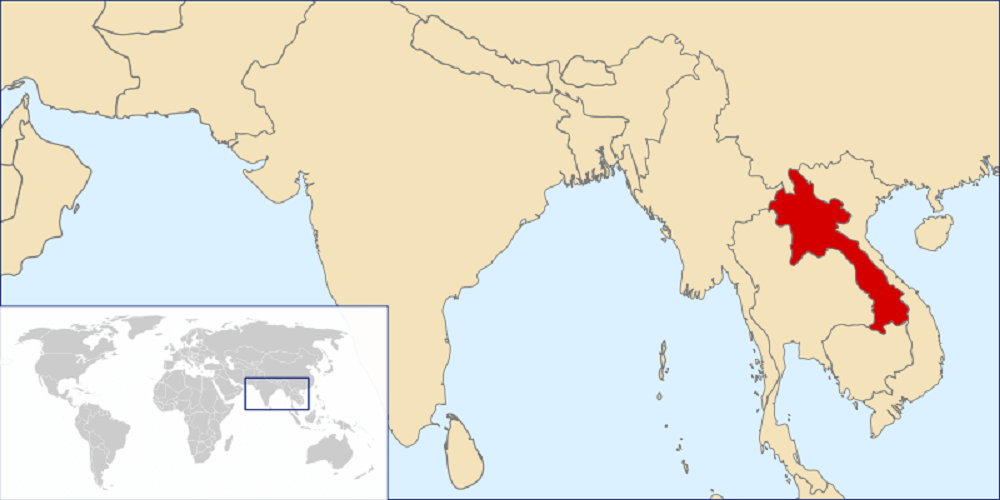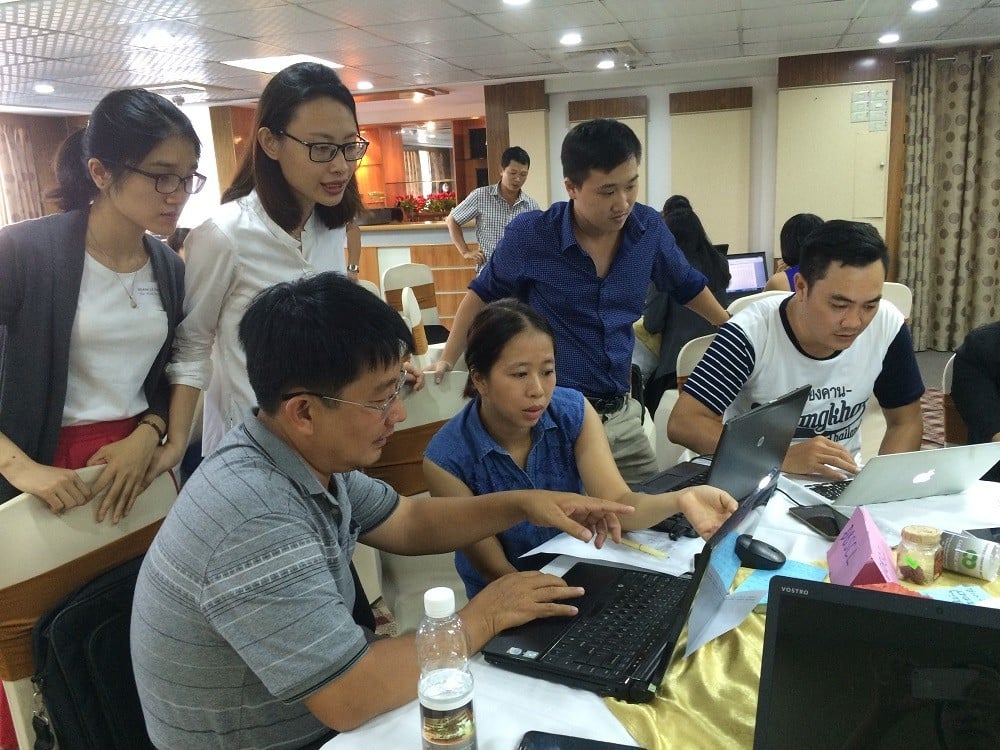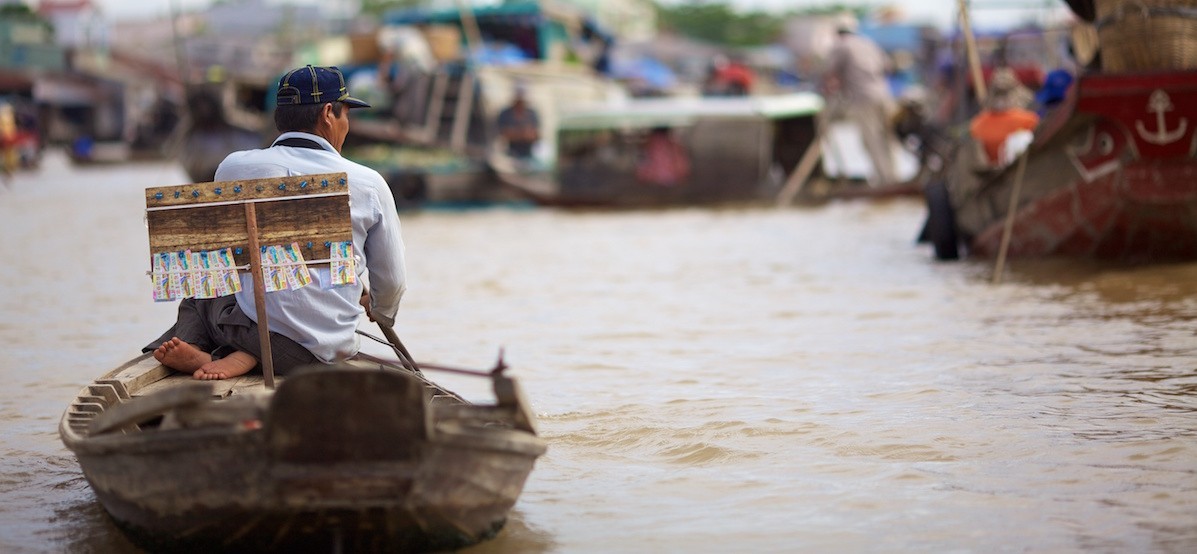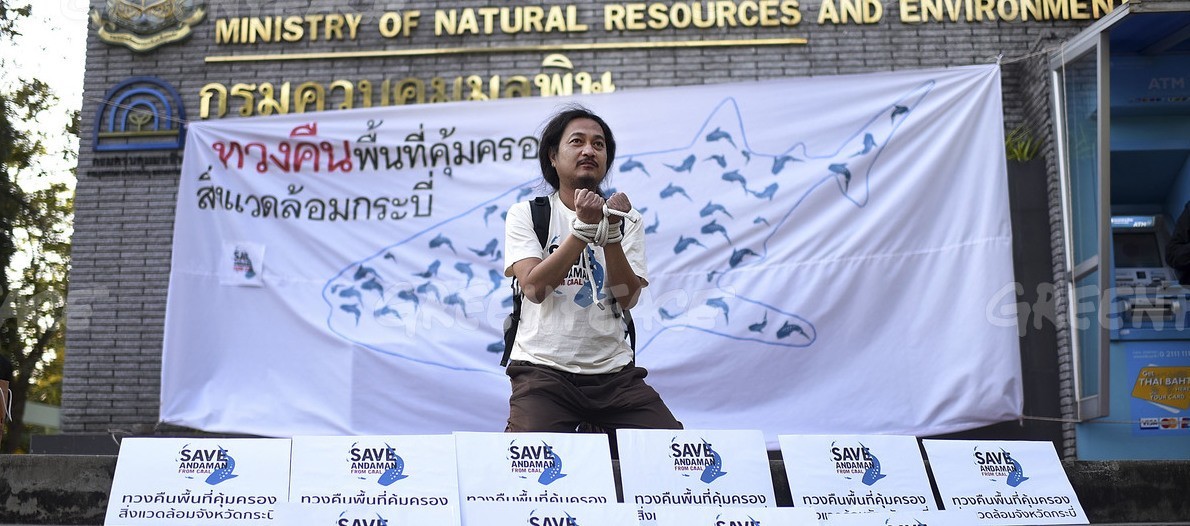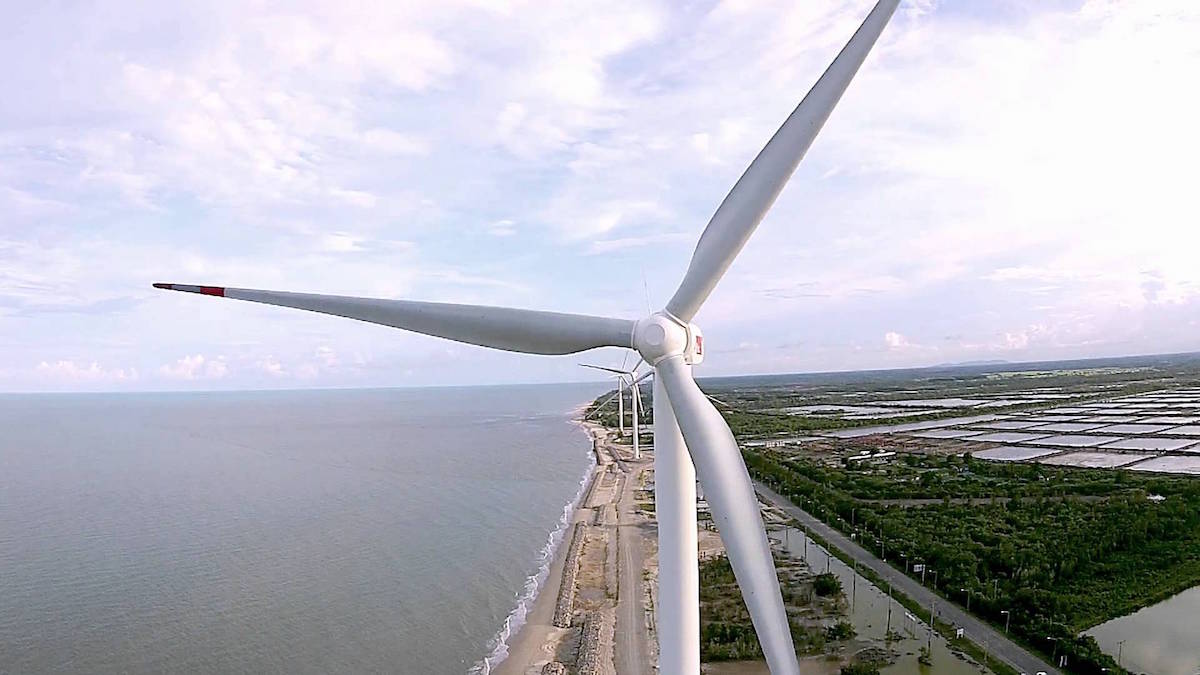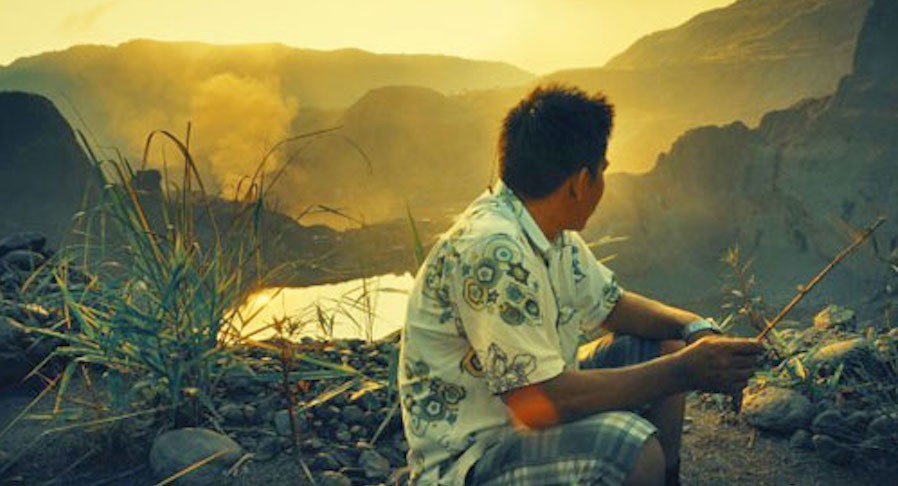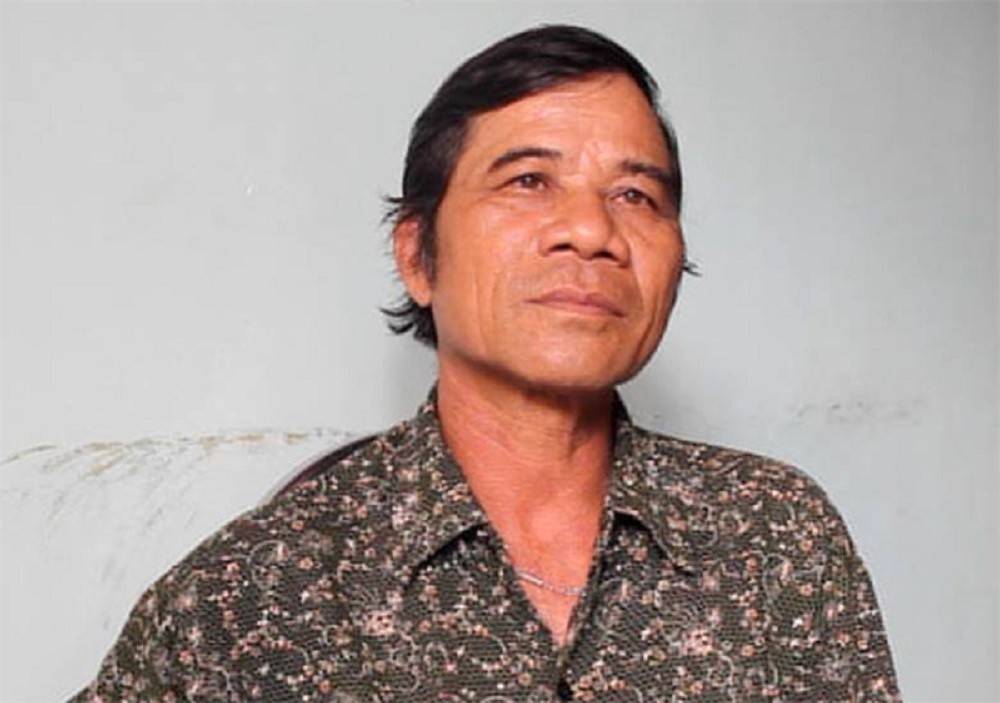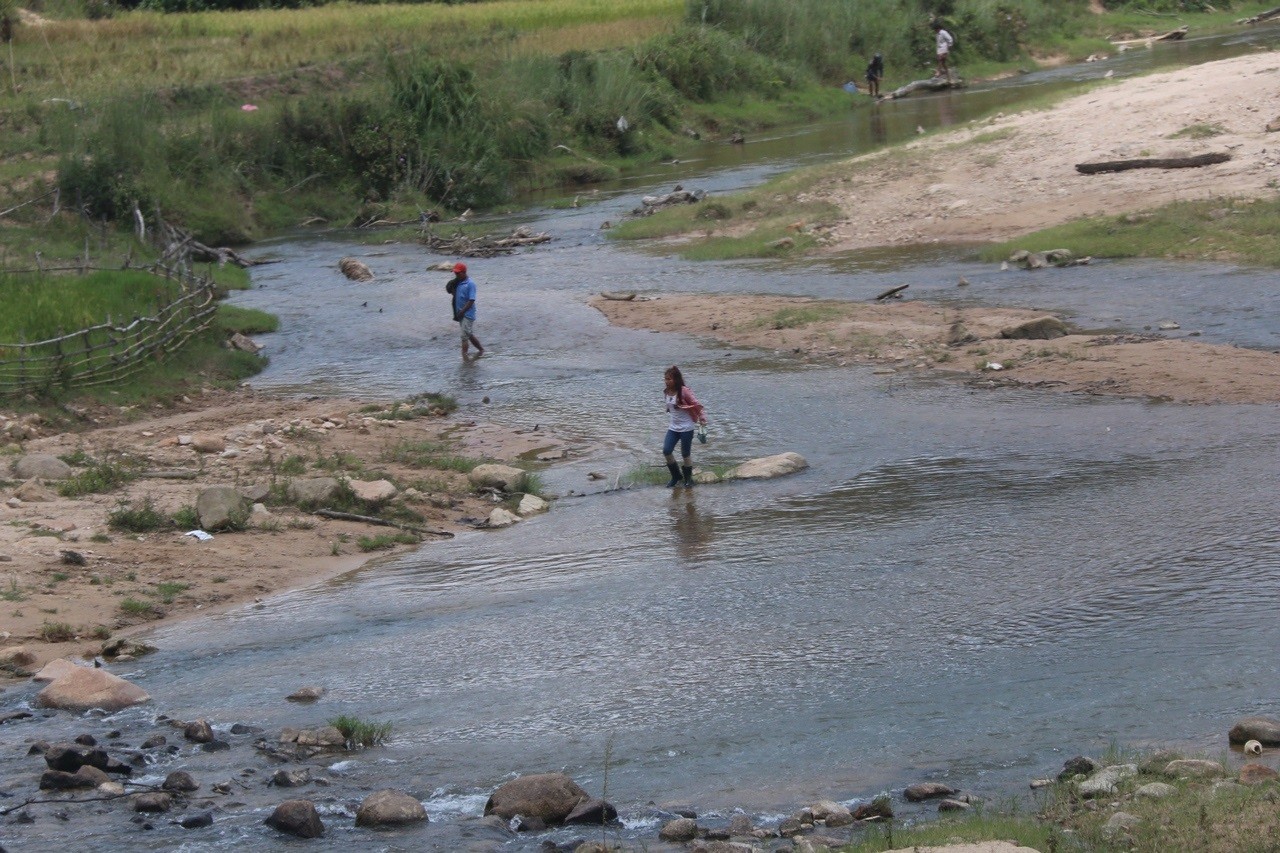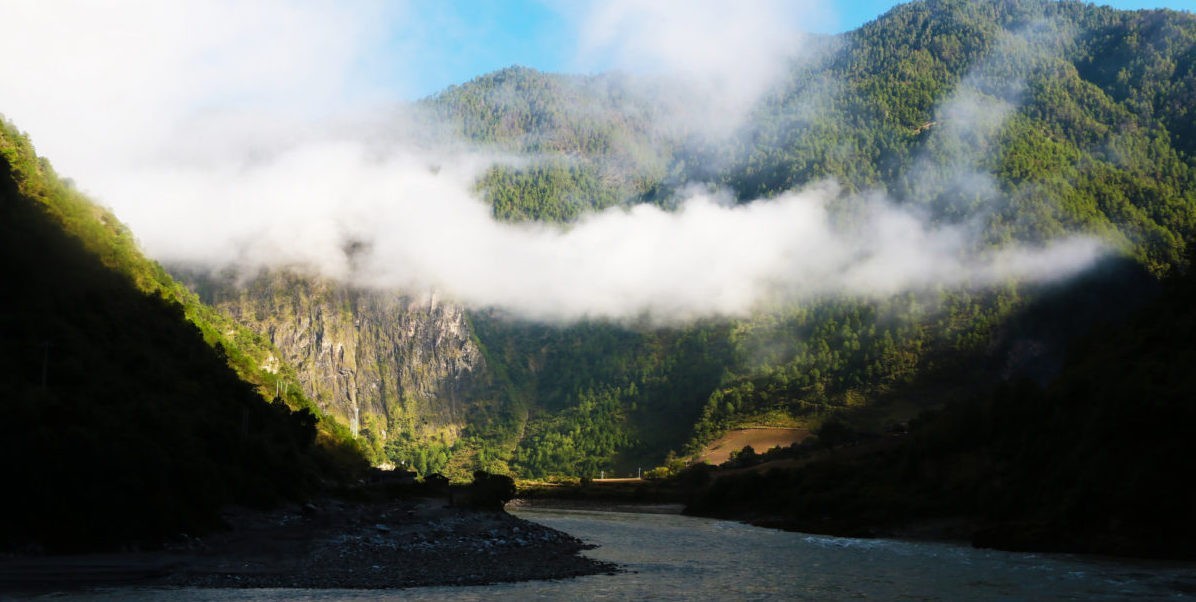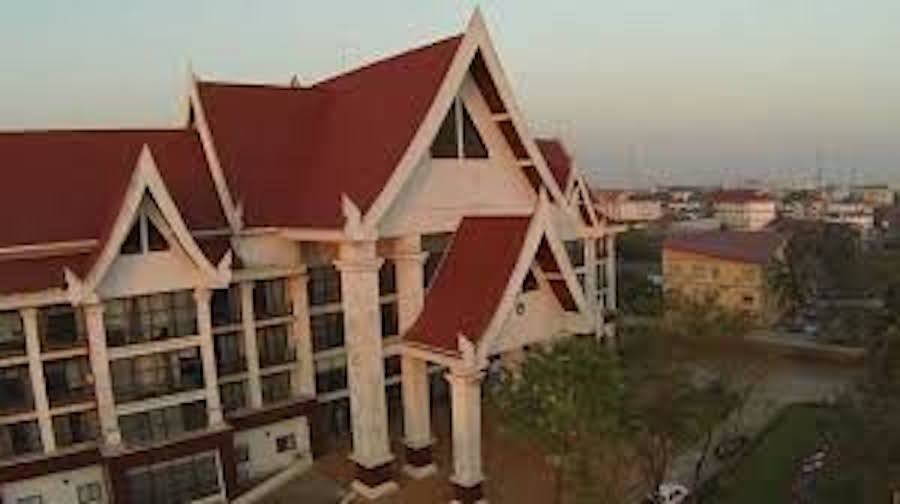In commemoration of LaoFAB’s 10th anniversary, the top 25 most popular research papers and reports in its repository have been made public. The list is dominated by studies of land concessions and food security.
Tag: Environment
Environmental Protection by the Numbers: Vietnamese Journalists Learn to Use Data to Tell Stories
From 26-28 October 2016 in Hanoi, Vietnam, USAID-supported Mekong Partnership for the Environment (MPE) partners PanNature and Internews’ Earth Journalism Network trained Vietnamese journalists and local NGOs on how to better source, analyze and incorporate environmental data to tell compelling stories. The workshop aimed to build journalists’ skills in using data to understand and describe environmental issues – particularly in stories about the costs and benefits of regional development projects such as dams, mines and power plants.
Moving beyond the Myitsone dam dilemma
Amid a wave of popular protest, construction on the Chinese-backed project was halted by the Thein Sein government in 2011. Daw Aung San Suu Kyi’s assurances in August that there will be a solution to the stalled dam may be welcome news in Beijing.
Clean energy for Krabi
In a bid to create the impression that the coal-fired power plant in Krabi has won backing from locals, Krabi governor Pinit Boonlert submitted a list of supporters’ signatures last week, totalling 15,000, to the government. That is worrisome.
The move came immediately after Prime Minister Prayut Chan-o-cha said the government attached importance to public participation and would pay heed to locals’ needs when making a final decision over the contentious project in the province with a population of 456,800. He made the comments in response to the fresh round of protests by anti-coal supporters at Government House last month.
VN green energy gets strong tail wind
Việt Nam is hoping to boost its renewable energy production, especially wind and solar energy, to more than 10.7 per cent of total generation by 2030, up from the previously planned 6 per cent.
It plans to increase the rate to at least 7 per cent by 2020, up from the previous target of 4.5 per cent.
The country now relies heavily on electricity from coal and hydropower.
Myanmar director takes his film to Luang Prabang
The film is a powerful indictment of the country’s rogue crime and drug-infested jade mines, though at its core it is a human story of brothers reuniting and reconnecting, of attempting to define the inexplicable. Shot is Mandalay and Hpakant, Kachin State’s “city of jade”, the movie took two years to complete. Production was steeped in technical and cultural challenges, says Midi Z. The harsh physical environment, as well as cultural factors made production particularly difficult.
The forest comes back, and so does the Central Highlands culture
Recently, the Central Highlands has been planned as the location for the largest hydroelectric center in the whole country. Along the major river systems of five regional provinces there are 11 large-scale hydropower plantsin operation, as well as 360 small and medium hydropower plants that have been planned and built. However, due to the impacts on the environment, local economy and society, some projects were suspended.
The risks of diverting water
Thuong Kon Tum dam, which is built in the Dak Snghe River watershed, is one of the biggest hydropower projects in the basin of the Se San river. The effect of the dam is still questionable but it raises concerns about environmental impacts as the project will take more than 382ha of watershed protection forests in Kon Tum province and divert water into the Tra Khuc river in Quang Ngai province.
Damming the Salween: what next for Southeast Asia’s last great free-flowing river?
It’s difficult to encapsulate, as an outsider, how significant the Salween is in the hearts, minds and identities of the ethnic communities who live in its watershed. “From the Land of Green Ghosts,” Pascal Khoo Htwe’s autobiographical account of life in conflict-ridden eastern Myanmar is flecked through with references to the “legendary River Salween,” the river he refers to as “an old friend or a lover.” Meeting with Salween riverine communities in Myanmar today, Pascal Khoo Htwe’s depiction of his relationship with the river burns strong – they still talk about it all the time.
Sweden Pledges $5.3M to Mekong River Body
As bitter protests continue over ongoing Mekong River dam projects, Sweden has pledged $5.3 million to a controversial multinational body monitoring development in the basin.
The funding—to be disbursed over the next four years—will promote sustainable hydropower in the Mekong River basin, the Mekong River Commission (MRC) said in a press release.


